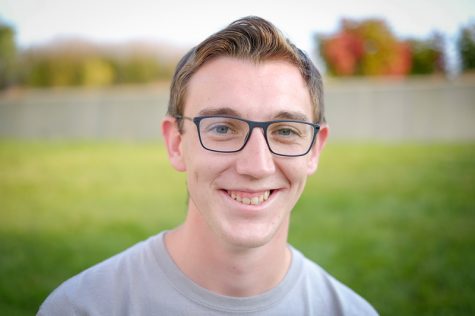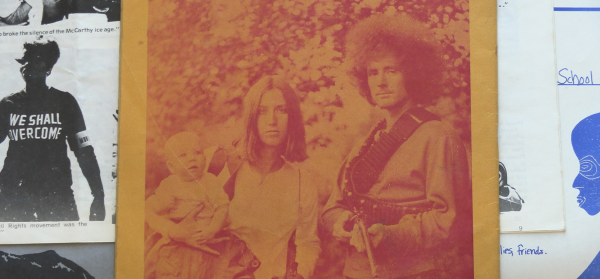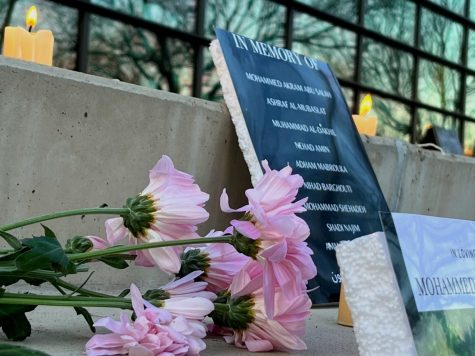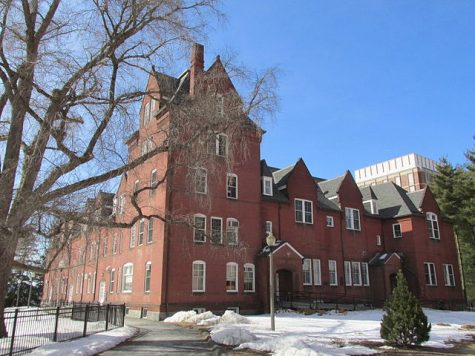Reporter Reese Erlich discusses the complexities of the war in Syria
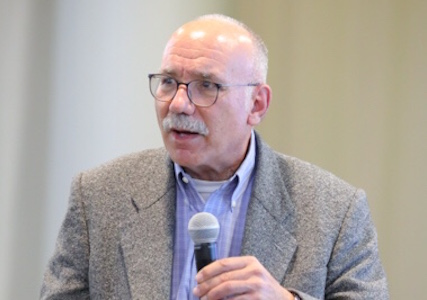
AMHERST — Freelance foreign correspondent and author Reese Erlich shared his ideas and analysis on the bloody and chaotic conflict in Syria at an event in the Integrative Learning Center at the University of Massachusetts Amherst on Thursday night.
Ehrlich’s analysis was based on his numerous reporting trips to Syria and Iraq, which culminated in his book published in 2014, “Inside Syria: The Backstory of Their Civil War and What the World Can Expect.”
Erlich has reported on the Syrian War for CBS radio, National Public Radio, Foreign Policy and Vice News, among others.
“What’s happening in Syria is a human tragedy of epic proportion,” Erlich said.
Erlich was critical of United States policy in Syria. He argued the U.S. should play a larger humanitarian role and should not be involved in the region militarily.
According to Erlich, U.S. military action in Syria has only “exacerbated” the violence in the region and created a more complicated, dire situation for the Syrian people.
“The hawks in Washington, on both sides of the aisle, say that Obama didn’t do enough, that he was weak. That he should have bombed [Syrian President Bashar] Al Assad. Hillary Clinton said we should impose a no-fly zone and escalate bombing. Donald Trump says we should align ourselves with Assad and Russia and bomb ISIS … When I suggest no military intervention at all, people in Washington look at me like I just landed from mars,” he said.
Erlich shared that when he was in Syria several years ago, he stumbled on the opportunity to speak with Abu Qatada, an Al Qaeda-affiliated cleric who used to live in the United Kingdom before he was deported to Jordan and then moved to Syria to fight against Assad.
According to Erlich, Abu Qatada criticized Obama for not doing enough to overthrow Assad, who is accused of committing war crimes against his people. Abu Qatada said if Obama had bombed the Assad regime, the Syrian people would “fly a flag with his face on it,” according to Erlich.
Erlich questions the cleric’s motives. He believes Al Qaeda wanted foreign powers to help overthrow the Assad regime so that they could control territory in the region and redraw the map of Syria, which they view as illegitimate.
“Democratic and Republican hawks, Al Qaeda, they all have advocated one kind or another of that policy,” Erlich said.
Erlich also criticized the Obama administration’s policy of training and arming “moderate” Syrian rebels.
“There are no moderate rebels,” Erlich said.
He argued that extremists have exploited the civil war and that the opposition to Assad is dominated by Jihadist groups, such as ISIS, Al Nusra, Al Qaeda and other factions.
“Every time we’ve tried to arm the rebels one of two things have happened. The arms were immediately seized by extremists, or the rebels joined these extremist groups right away,” Erlich said.
Erlich warned that if Assad were to fall, the country would plunge into more sectarian violence and severe instability.
“The U.S. military has the capability of defeating many different people. It’s what happens after the defeat that’s the problem,” he said.
Erlich acknowledged that Assad, who he called a “brutal dictator,” had committed atrocities, he pointed out that “rebels intentionally killed civilians in Aleppo too. All sides have committed war crimes.”
Erlich warned that bombing areas controlled by ISIS result in unintended consequences as well, making it ultimately unwise in his estimation.
“Some people in Washington think we can bomb where we want without consequence,” he said.
Erlich noted that before the US bombing campaign against ISIS, the group had not orchestrated a terror attack outside of the region. He said that the attacks in Brussels, Paris and Turkey were “in retaliation” to the bombing campaign waged by the U.S. and its European allies.
“We created a terrorist threat in Europe through our bombing,” he said. “The civilian deaths caused by the airstrikes only embolden ISIS in the region.”
Erlich said that for the price it costs the U.S. military to operate in Syria for one day, the country could help refugees who are stuck in camps throughout the region.
“I’m astonished by the lack of resources we’ve provided to the refugees there…it’s not nearly enough,” he said.
Erlich argued that for any lasting peace to take hold in Syria, “outside forces need to be eliminated, politically and militarily…the Syrian people need to decide their fate for themselves. It needs to be organic.”
Erlich said he’s uncertain about the how the situation in Syria will unfold, or how U.S. policy will change under the Trump administration.
“Nobody knows exactly what Trump is going to do in Syria. I don’t think he even knows what he’s going to do. I don’t think he could find Syria on a map. But he has smart and dangerous people around him…Who knows? There could be a new tweet tomorrow,” he said.
One thing is certain, though.
“The war is far from over,” Erlich said.
Email Bryan Bowman at BBowman@umass.edu or follow him on Twitter @BryanBowman14.

